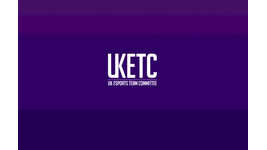
Overwatch League Players Will See Changes for Their Mental Health
Justin Lam — November 6, 2018 — Tech
References: pastemagazine & theverge
In an attempt to better support the mental health of Overwatch League players, the large esports association is making significant changes to the way it is structured. Primarily, the league will be moving to a shorter schedule, dropping to just 28 games in a season. This will allow for more time off for players with some teams only playing a single match in a week. The league also aims to cut down travel time in the future by having teams host games in their city as opposed to traveling to Blizzard's Burbank esports arena for every match.
Ultimately, these changes work to prioritize the health of the Overwatch League players and prolong their ability to continue playing. These changes show the commitment Blizzard has towards it esports' ventures as it continues to grow the brand as a legitimate sport.
Ultimately, these changes work to prioritize the health of the Overwatch League players and prolong their ability to continue playing. These changes show the commitment Blizzard has towards it esports' ventures as it continues to grow the brand as a legitimate sport.
Trend Themes
1. Shorter Schedule - A shorter schedule in eSports leagues allows for more time off for players, reducing the risk of burnout and improving their mental well-being.
2. In-city Games - Hosting eSports games in the city of teams rather than centralized arenas reduces travel time and expenses, making it more convenient for players and fans.
3. Priority on Mental Health - The focus on mental health in eSports leagues creates opportunities for innovative solutions and services that can support the well-being of players and enhance their performance.
Industry Implications
1. Esports - eSports industry can explore new business models and technologies to implement shorter schedules and mental health support systems for players.
2. Sports Technology - The sports technology industry has the opportunity to develop advanced analytics and wearable devices that monitor and enhance the mental well-being of eSports league players.
3. Travel and Hospitality - The travel and hospitality industry can cater to the needs of eSports teams by providing convenient and personalized services for hosting in-city games and reducing travel-related stress.
0.9
Score
Popularity
Activity
Freshness























